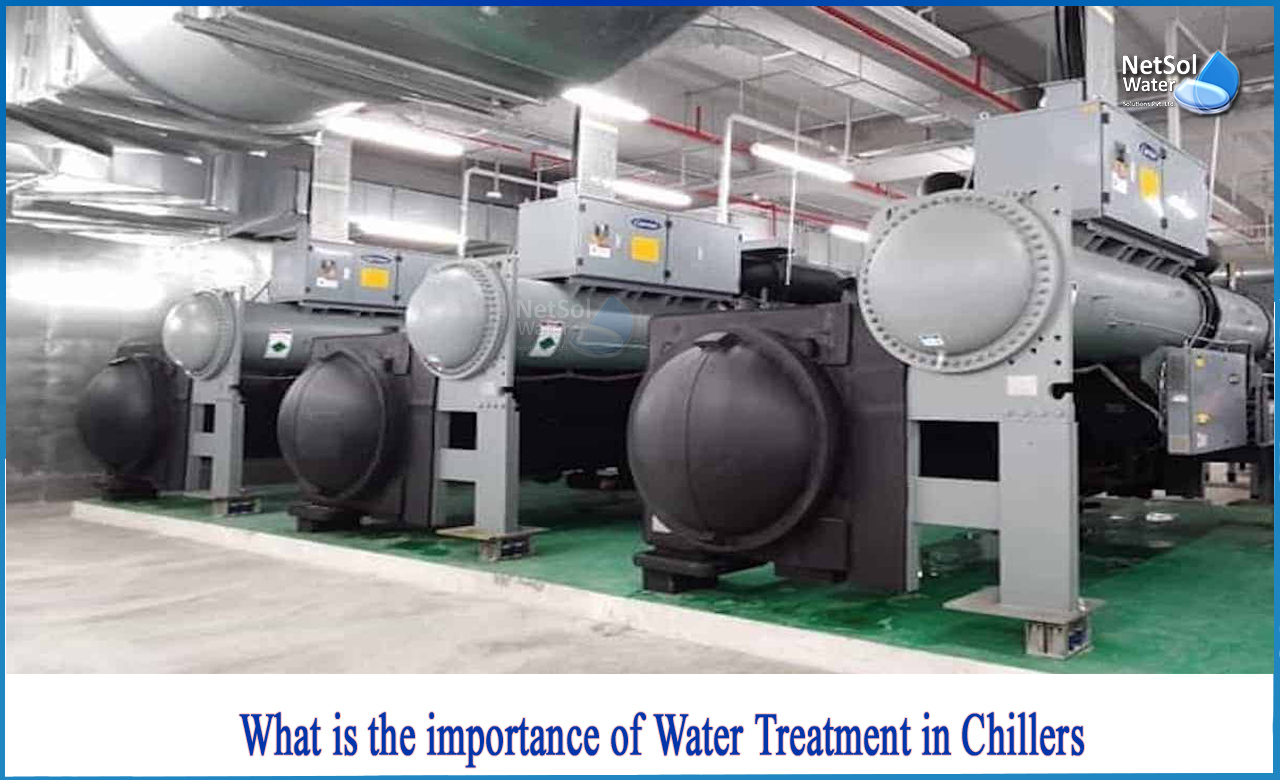What is the importance of water treatment in chillers?
Commercial and industrial cooling systems all around the country rely on chillers. Heating, ventilation, and air conditioning (HVAC) systems de-humidify and cool commercial buildings. As part of broader programs based on building performance and sustainability, modern commercial buildings seek efficient HVAC systems and components.
Chillers have become an important part of the HVAC system in a wide range of commercial buildings, including hotels, restaurants, hospitals, sports arenas, industrial and manufacturing plants, and so on.
Why chiller facilities need water treatment?
The treatment of water is an important aspect of the operation and maintenance of a chiller. Most chiller facilities should have chiller water treatments, especially if the pipes are built of low carbon steel and normal water is utilized as the make-up water.
1: While numerous frequent problems can influence chiller efficiency, contamination of the chiller's heat-transfer surfaces is likely the most serious. The ability of a chiller to transport heat efficiently determines its efficiency and performance. The ability of a chiller's tubes to transport heat is severely reduced if they get covered or blocked by scale, sludge, or biological growth.
2: The rate at which fouling occurs is mostly determined by the water quality in the system, although even a small coating of contamination can drastically lower overall efficiency. Most maintenance engineers are aware that if a chiller's water and glycol mix is improper, corrosion, system deterioration, and leaks can occur, as well as the accumulation of rust, scale, algae, and debris. Having a simple 'watch list,' on the other hand, can help you avert a problem.
3: Be cautious if the chilled water system is made of mild steel, copper alloys, aluminium, or galvanized steel, and make-up water contains minerals and bacteria. If your system has any of these qualities, water treatment is a must if you want to keep it running for a long time. To guarantee that protection continues, you must maintain the water treatment and monitor the results for corrosion, deposits, and microbial control on a regular basis.
4: Even in closed loop systems with no external influences to influence their degeneration, systems that use one or more chillers must keep water treatment goals in mind. If your business uses chillers, make sure to assess your present water treatment plan in light of this specific equipment, and if you don't have one yet, now is the best time to start.
Conclusion
The truth is that whether you have a closed loop or an open loop water system, you'll need to pay close attention to your water treatment approach and treat your chiller on a regular basis, not just once. You could have one or more of the following frequent difficulties that untreated chillers confront if you don't get consistent, data-driven treatment.
What do we offer?
Whether you're thinking about water treatment for your chiller for the first time or have a strategy in place but it's not working as well as you'd want, talk to the experts.
Netsol Water professionals are the industry leaders in water treatment and would be pleased to assist you in developing a tailored plan for your chiller. The company designs and manufactures all in one system’s that are ideal for treating wastewater and the sludge generated.
Support is given throughout the process, from the tender stage to the commissioning of the drive at your location. You can use our platform to try the services of specialists and be worry-free in the comfort of your own home. Our water and wastewater treatment products and solutions can provide the water your plant requires at every stage!
For further assistance or product-purchase related query,
Call us on +91-9650608473;
Or, write us at enquiry@netsolwater.com



